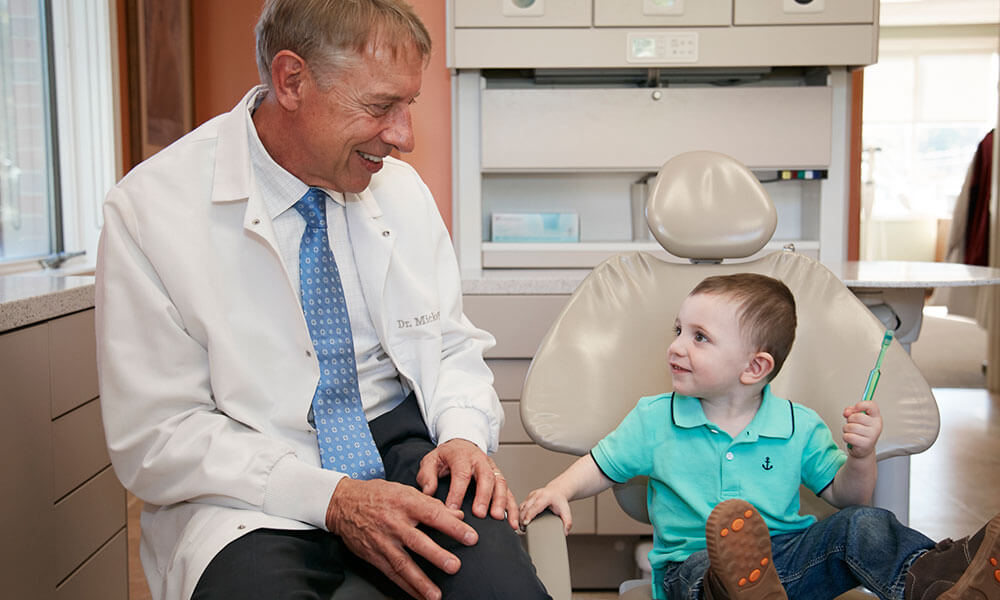Early Treatment

Orthodontic Early Treatment
The American Association of Orthodontists recommends that every child see an orthodontist by age 7, and perhaps earlier if an orthodontic concern is identified. Around age 7, the first adult molars typically erupt, helping to define a patient’s back bite and allowing the orthodontist to more effectively evaluate the bite. Treatment at this age may not be necessary, but orthodontic monitoring can help anticipate the ideal timeline for the most effective treatment and also help to prevent more serious problems in the future.
Some Results of Effective Early Treatment:
- Reducing the need for tooth removal
- Creating space for crowded, erupting teeth
- Reducing the risk of injury to protruding front teeth
- Preserving needed space for permanent teeth
- Reducing future orthodontic treatment time
Pediatric Early Treatment
The American Academy of Pediatric Dentistry (AAPD), American Dental Association (ADA) and the American Academy of Pediatrics all recommend a dental visit for children by age one. Proper care for baby teeth is imperative as they serve several critical functions, including; fostering good nutrition by permitting proper chewing, aiding speech development and helping proper development of permanent teeth by saving space for them.
Benefits of the Year One Dental Visit:
- 1 + 1 = ZERO. ONE dental visit when there’s ONE tooth can equal ZERO cavities.
- Visiting a pediatric dentist by the time the first baby tooth appears enables the child to begin a lifelong preventive dental care program to minimize tooth decay and cavities.
- Pediatric dentists can detect early tooth decay, provide parents with information on proper oral and facial development, determine fluoride needs and more.
- The year one dental visit can actually save money. A study in the journal Pediatrics showed that children who have their first dental visit before age one have 40 percent lower dental costs in their first five years than children who do not, due to the cost of dental and medical procedures that may be necessary as a result of poor oral health.
